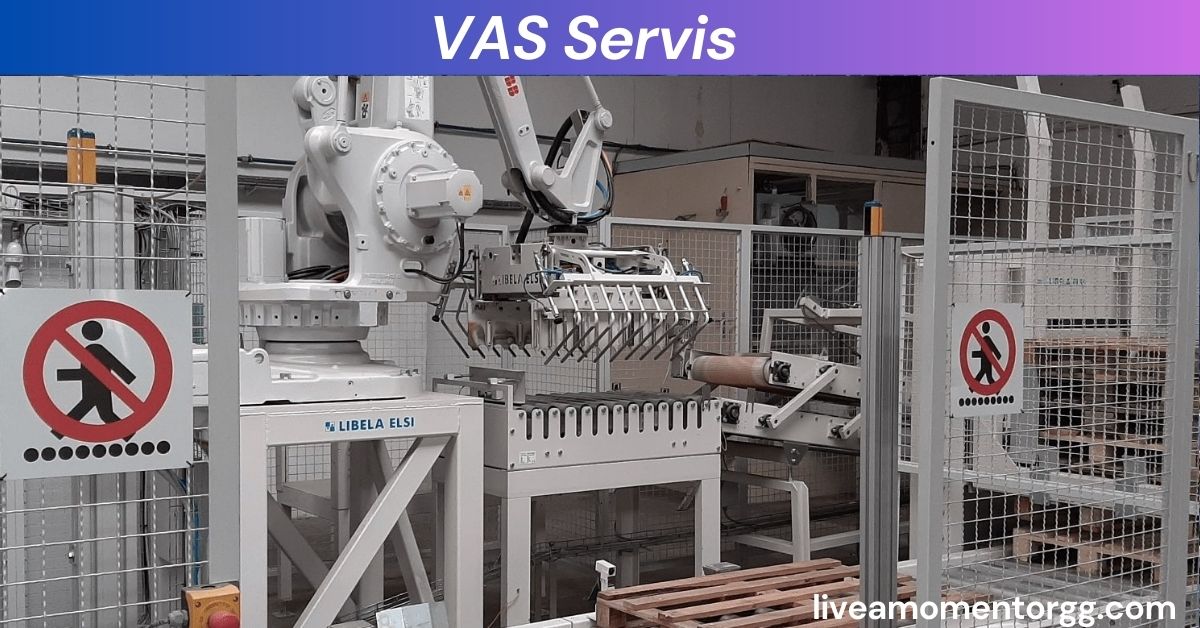VAS Servis: The Value-Added Services Revolution
VAS servis, or “Value-Added Services,” is a critical concept in various industries like telecommunications, banking, healthcare, e-commerce, and IT. These services are additional offerings beyond the core or fundamental services that companies provide, aiming to improve the overall customer experience and increase business revenue.
The concept of VAS services has become vital as businesses strive to differentiate themselves in highly competitive markets. Today, customers expect more than just the basics, whether they are using a mobile network, banking, shopping online, or receiving healthcare. They want added benefits, customization, convenience, and innovative solutions. As a result, businesses have started incorporating value-added services to stay competitive and relevant in their industries.
For example, in telecommunications, customers often receive basic services such as voice calling and text messaging, but through VAS, they can access premium services like mobile gaming, video streaming, and music services. These additional services go beyond what’s typically offered and enhance the overall user experience, creating greater customer satisfaction.
Why Are VAS Services Important?
In today’s world, businesses can’t simply rely on their core offerings to stay relevant. Consumers are increasingly looking for more than just basic services; they want added value that can improve their lives or provide them with extra convenience. This is where VAS services come into play.
VAS benefits both consumers and businesses:
- For consumers, VAS enhances their experience by offering additional features or products tailored to their preferences. For example, a mobile user can access exclusive content or use specialized tools for productivity or entertainment.
- For businesses, offering VAS can create new revenue streams, foster customer loyalty, and differentiate the brand from competitors. Additionally, the data collected through VAS usage helps businesses better understand customer needs and preferences.
VAS has transitioned from being a supplementary service to a vital component in modern business strategies, serving as a means to not only meet but exceed customer expectations.
Key Features of VAS Servis
VAS services come with several key features that make them attractive to both businesses and consumers:

- Added Value: The most obvious characteristic of VAS is the added value it provides beyond core services. For example, while a mobile operator may provide basic voice and data services, a VAS could be access to exclusive entertainment content, cloud storage, or even a mobile wallet.
- Customization: Businesses can offer tailored solutions based on the unique needs of their customers. This could mean personalized recommendations for shopping or tailored financial advice for banking clients.
- Monetization: Many VAS offerings are monetized, providing businesses with an additional revenue stream. Customers may pay for premium services, or businesses may offer freemium models where basic services are free but advanced services require payment.
- Customer Loyalty: By offering services that enhance the customer experience, businesses can improve retention rates and cultivate loyalty, which is often more profitable than acquiring new customers.
- Innovation: The demand for new and improved services keeps businesses on the cutting edge of technology. VAS often includes advanced, state-of-the-art features, allowing companies to stay ahead of the competition.
The Role of VAS in Business Strategy
VAS is no longer just a supplementary offering—it has become a key component in business strategy. It is a way for companies to increase engagement with their customers, improve customer retention, and generate new revenue streams.
For example, in the telecom industry, VAS services such as mobile apps, cloud storage, and streaming services have become indispensable for customers, meaning that telecom providers can charge additional fees for these premium offerings. By focusing on VAS, telecom companies differentiate themselves from competitors who may only provide standard calling and texting services.
Also Read: Len Pullen: Exploring the Intersection of Traditional and Digital Art
Similarly, in the banking sector, VAS can take the form of personalized financial advice, budgeting tools, or mobile payment solutions. These services not only provide more value to customers but also help banks generate additional income.
Types of VAS Servis in Different Industries
1. Telecommunications VAS
In the telecommunications industry, VAS services have evolved significantly from basic text messaging and voice calling to include a wide variety of options. These services can be grouped into several categories:
- Mobile Entertainment: One of the most popular types of VAS in telecommunications is mobile entertainment. These services include things like music streaming, video content, mobile gaming, podcasts, and even live television. Mobile operators often partner with content providers to deliver exclusive entertainment options to their customers, adding value to the basic mobile services they provide.
- Mobile Payments: With the rise of mobile devices, mobile payments have become a major component of VAS. Through services like mobile wallets, apps such as Apple Pay or Google Pay, customers can make payments for goods and services directly from their phones. In some regions, mobile payments have become more common than using traditional credit or debit cards.
- Location-Based Services (LBS): LBS offer users services based on their location. This could include providing users with navigation tools, helping them find nearby restaurants, stores, or gas stations, or providing weather information relevant to their region.
- Premium SMS Services: Many telecom providers offer premium SMS services that allow customers to access exclusive content such as voting on TV shows, entering competitions, or subscribing to a service that delivers daily content via text message.
2. Banking and Finance VAS
The banking industry also relies heavily on VAS to enhance customer experience. These value-added services can include:
- Mobile Banking Apps: In the modern era, consumers expect to manage their finances at their fingertips. Mobile banking apps allow customers to transfer money, check balances, view account activity, and even apply for loans directly from their phones.
- Personalized Financial Advice: Many banks offer personalized financial advice, where customers can get expert recommendations tailored to their financial goals. This can range from retirement planning advice to investment strategies or credit score management tips.
- Credit Monitoring and Alerts: VAS in the banking industry often includes services that alert customers to changes in their credit score, pending bills, or unusual transactions, helping them stay on top of their financial health.
- Exclusive Offers and Deals: Banks can offer special deals to their customers, such as lower-interest loans, cashback offers, or exclusive discounts at partner retailers.
3. E-commerce and Retail VAS
In the world of e-commerce, VAS helps companies offer more than just products—they provide an enhanced shopping experience. Examples of VAS in e-commerce include:
Also Read: How to get the perfect light brown nails color backstageviral.com – A Comprehensive Guide
- Free Shipping or Expedited Delivery: Offering free shipping or faster delivery options as part of a premium service package can increase sales and customer satisfaction. Some businesses even offer subscription-based services for unlimited free shipping.
- Loyalty Programs: Many online retailers offer loyalty programs where customers earn points or discounts based on their purchases. These programs encourage repeat business and help create long-term customer relationships.
- Personalized Recommendations: Based on customer browsing history, e-commerce platforms can provide tailored recommendations for products that customers are likely to be interested in.
- Customer Support Services: Many e-commerce businesses offer 24/7 customer support, including live chat, which helps resolve any issues or answer questions, enhancing the overall shopping experience.
4. Healthcare VAS
The healthcare sector has embraced VAS to improve patient care and create more personalized experiences. These services may include:
- Telemedicine: The ability to consult with doctors through video calls or messaging has become especially important during the COVID-19 pandemic. Telemedicine allows patients to receive care from the comfort of their own homes, reducing the need for in-person visits.
- Health Apps: These apps can track a variety of health metrics, such as fitness activity, sleep patterns, calorie intake, and even mental health indicators. Some apps even provide real-time consultations with healthcare professionals.
- Wellness Programs: Many healthcare providers offer wellness programs that help customers manage chronic conditions, improve physical fitness, or maintain a healthy lifestyle. These programs can be delivered through apps, online courses, or in-person support groups.
How VAS Servis Benefits Businesses and Consumers
For Businesses:
- Revenue Generation: By offering premium VAS, businesses can create new streams of income, helping to increase profitability.
- Customer Retention: Offering value-added services increases customer satisfaction, making them more likely to stick with the brand for a longer period.
- Brand Differentiation: In a competitive marketplace, VAS provides a way for businesses to stand out. Offering innovative or unique services helps a brand differentiate itself from competitors.
- Market Expansion: VAS can help businesses target different customer segments, including tech-savvy consumers, niche audiences, or luxury clients, depending on the service offering.
- Customer Insights: By analyzing how customers use VAS, businesses can gather valuable data about preferences, behaviors, and needs. This data can be used to improve existing services or introduce new offerings.
For Consumers:
- Improved Experience: Customers enjoy added value from VAS, which enhances their overall experience. Whether it’s access to premium content, enhanced support, or personalized services, customers feel that they are receiving more than just the basics.
- Customization: Many VAS offerings are customizable, allowing consumers to tailor services to their preferences and needs. This could mean personalized financial recommendations or product suggestions based on browsing history.
- Convenience: VAS often brings convenience to consumers, providing tools and services that make their lives easier. Examples include mobile payments, telemedicine consultations, and online shopping loyalty programs.
- Better Service: VAS often includes enhanced customer service, such as 24/7 support, which can be crucial when dealing with problems or seeking assistance.
How Businesses Can Implement VAS Servis
Implementing VAS requires careful planning and execution. Here are some steps for businesses looking to integrate VAS into their offerings:
- Identify Customer Needs: The first step in offering VAS is understanding what your customers truly want. Through market research, surveys, or customer feedback, businesses can pinpoint the services that will be most appreciated.
- Develop Scalable Solutions: Choose technologies and platforms that can scale as your customer base grows. Consider cloud-based services and mobile apps that can accommodate increasing demand.
- Monitor Usage: Regularly track how customers are using the VAS offerings to understand what is popular and what isn’t. Use this information to fine-tune the service offerings and improve customer satisfaction.
- Offer Tiered Options: Providing different levels of VAS (free vs. premium) ensures that all customers can benefit from value-added services, while also allowing businesses to generate additional revenue.
- Customer Education: It’s crucial to educate customers about the benefits of VAS. Clear communication through marketing materials, app tutorials, or in-store staff can help customers understand the added value of these services.
Also Read: MT Oeuvre: Unveiling the Depth and Significance of a Modern Artistic Legacy
VAS Servis in the Digital Age
With the advent of new technologies, VAS services are evolving at an unprecedented rate. Artificial intelligence (AI), big data analytics, and automation are transforming the way businesses deliver value-added services.
The Role of AI and Automation
AI is increasingly being used to deliver personalized experiences to customers. For instance, chatbots can provide instant support, while AI-powered algorithms can offer personalized product recommendations or financial advice.
Data-Driven Decisions
By analyzing customer data, businesses can make informed decisions on what VAS to offer. Insights into customer preferences, behaviors, and usage patterns can help businesses tailor their services to meet demand and improve customer satisfaction.
FAQs About VAS Servis
What is the main purpose of VAS servis?
The main purpose of VAS is to provide additional value beyond core services, enhancing customer experience and generating extra revenue for businesses.
Can VAS be customized?
Yes, VAS can be customized to suit the needs of different customer segments or individuals, allowing for personalized experiences.
How do VAS services benefit consumers?
Consumers benefit from VAS through improved convenience, better customer support, personalized services, and enhanced experiences.
How do businesses generate revenue from VAS?
Businesses generate revenue from VAS through premium offerings, subscription models, in-app purchases, and partnerships with third-party providers.
Is VAS limited to telecommunications?
No, VAS is applicable in various industries, including banking, e-commerce, healthcare, and more.
Conclusion
VAS servis, or Value-Added Services, is a powerful tool for businesses across industries to provide enhanced customer experiences, generate additional revenue, and differentiate themselves in a crowded marketplace. For consumers, these services bring added convenience, personalized experiences, and better value.
As businesses continue to innovate and harness the power of VAS, the possibilities for what can be offered are endless. Whether in telecommunications, banking, healthcare, or retail, VAS is here to stay, transforming the way we interact with products and services.






